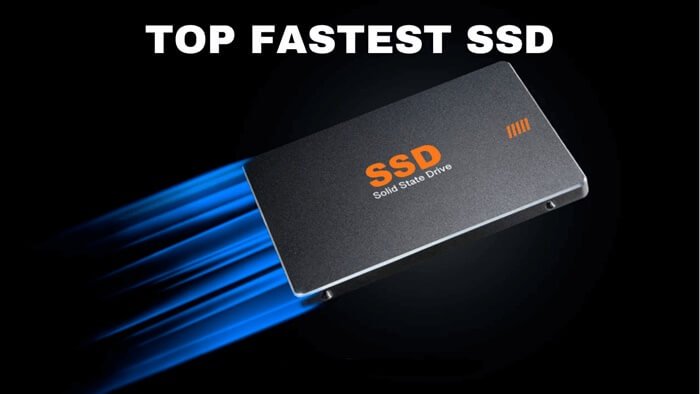SSDs are fast and cheaper than HDDs, but their speed is one of many benefits of an SSD. They are also lighter and more durable. But which is better? In this article, we will compare the two types of hard disks and weigh in on the performance of both. SSDs are the clear winner in this comparison.
Contents
SSDs are faster
As a storage device, SSDs are faster than HDDs for several reasons. First, they can operate much faster because they do not have moving parts. HDDs have spinning platters and need time to reach their optimal operating speeds. Using an SSD means that you won’t have to wait as long. Secondly, SSDs use less power and make less noise.
Second, SSDs are more durable. Because they don’t have moving parts, they can survive drops. This means that your computer can take much more punishment, and the SSD will remain stable. Finally, SSDs are less expensive than HDDs so you can save money on an SSD.
Although both types of storage devices are similar in price and capacity, their performance varies. You’ll need a faster storage device if you plan to use your PC for gaming or video editing. Another advantage of SSDs is their capacity. HDDs are cheaper per gigabyte of storage than SSDs but require more power than SSDs. They also take longer to read/write data than SSDs.
In short, SSDs are faster than HDDs, so your computer will run games more quickly. An SSD is better for this purpose if you play many video games. It will also load games more quickly than an HDD. And if you have a lot of data on your hard drive, it will be faster to read it from an SSD. SSDs also last longer.
A new PC with an SSD is faster. Not only will it boot faster, but it will also wake up faster from sleep faster than an HDD. Speed is one of the most important factors when choosing a storage device. When buying an SSD, remember that an older machine may need more storage capacity.
They are cheaper
It is no longer a secret that SSDs are cheaper than HDDs. They’re much cheaper. In 2003, the market began to shift toward SSDs, as the two most prominent players in the market, Texas Memory Systems, and Imperial Technology, released their first SSD systems. The latter was an expensive 1TB system, which cost $2 million. The company also introduced a 16-kilobyte RAM-based system.
However, while SSDs are cheaper than HDDs, they only last for a short time. HDDs are still an excellent option for users who need a large storage capacity. However, users with rich media collections will find that 2TB drives are less expensive than 500GB SSDs. As a result, they’ll need to buy larger hard drives to accommodate their media libraries.
In dollar terms, SSDs are cheaper than HDDs but are also more expensive per gigabyte. A 1TB internal 2.5-inch hard drive costs $40 to $60 per gigabyte, while the cheapest SSDs start at $80. In contrast, high-capacity 3.5-inch hard drives can cost as little as three cents per gigabyte.
When comparing SSD prices and capacity, it is essential to consider how you’ll be using your SSD. SSDs are much faster than HDDs. This is because they use flash memory chips instead of magnetic disks. That means there’s no gap between data bits, so the reading and writing processes are much quicker.
SSDs are faster and more reliable than hard disk drives. They require fewer moving parts, which saves energy and money. They’re also more durable and cheaper per megabyte. HDDs use rotating disks that can fail and are much slower.
They are lighter
One of the primary benefits of an SSD is that it is much lighter and more energy-efficient than a standard HDD. This means it uses less power, saving battery life, especially for mobile devices. Additionally, because it does not have moving parts, it produces less heat than a conventional HDD. Another benefit of an SSD is that it is much more durable than an HDD. The lack of moving parts means it will not break as easily, making it a good choice for travel users.
HDDs are cheaper than SSDs but have a few disadvantages. Since hard disk drives are fixed inside your computer, you can’t move them from one computer to another. Furthermore, they have fewer write cycles, which limits their use. This means that HDDs are still prevalent in big organizations. HDDs also cost less per GB, which can become a significant factor when storing large amounts of data.
Another benefit of an SSD is that it is tiny compared to an HD. The SSD is only a board with chips, so it can be made much thinner than a traditional HD. This allows it to fit into even the smallest devices. Another advantage of an SSD is that it is more energy efficient than an HDD because it does not have moving parts. Furthermore, it will last longer on a single battery charge, and you can expect it to be more reliable than an HDD.
Another advantage of an SSD is that it is much faster than an HDD. You can measure the difference between the two using benchmarking tools. Many drive manufacturers provide benchmarking tools to help you determine how fast SSDs are compared to their HDD counterparts.
They are more durable.
SSDs are much more durable than HDDs in many ways. For one, they are smaller and more efficient. HDDs have a finite lifespan and must frequently defragment to maintain optimal performance. SSDs, on the other hand, can withstand shocks, vibration, extreme temperatures, and magnetic fields. They also have low power consumption.
Another reason to use an SSD over an HDD is that it has no moving parts, making it less susceptible to damage. A modern SSD will likely last for decades. Because it doesn’t have moving parts, it’s less likely to be damaged by a drop or a bump. Moreover, an SSD will be more reliable in extreme environments. Despite these advantages, it’s important to remember that SSDs aren’t infallible.
As for durability, SSDs are also more reliable than HDDs. In a study conducted by the online backup company Backblaze, SSDs have a failure rate of 1.05% after four years, compared with 0.00% after one year. The result is that SSDs are a much better choice for daily use. SSDs are also significantly faster than hard drives.
Whether you choose an HDD or an SSD depends on your needs. If you’re looking for a computer for gaming, an SSD is a better choice. An SSD allows you to play games faster and without stuttering. That’s important for eSports, where players need a lot of storage space.
HDDs have long-term reliability, which is why consumers value them. When not subjected to shock or vibration, they can last for years. Compared to SSDs, HDDs are more reliable in some situations, but they still can’t withstand the same high-impact scenarios as an SSD. SSDs are also faster and use less power, meaning that you’ll have longer battery life.
They are more resistant to damage.
SSDs are much more resistant to damage than HDDs due to their lack of moving parts. As a result, they are much more resistant to shock and other physical elements, which can damage the internal components of HDDs. In addition, HDDs use magnetic storage, which is susceptible to damage from strong magnetic fields.
HDDs use magnetic storage to store data and have a spinning platter. The head moves up and down in a cycle, reading and writing data. While the rate at which HDDs process data has increased over time, the physical components of the device limit its speed. When the disk moves too quickly, it loses accuracy, and the disk can only spin so fast before it breaks or warps. Furthermore, speeding up the platter to an optimal speed is time-consuming, resulting in a longer boot time.
In addition, an SSD consumes less energy than an HDD and weighs less for the same amount of data. Because there are no moving parts, SSDs are quieter than HDDs. This also makes them more portable, making them much easier to carry and store.
Although there are many benefits to SSDs over traditional hard drives, they are still more expensive than HDDs and tend to have smaller storage capacities than HDDs. If you need a lot of space for your computer, it’s best to stick with a traditional hard drive for now. However, SSDs are more reliable than HDDs and should provide years of service.
Another benefit of SSDs is their size. They can fit into a variety of PCs and notebooks. They can also be installed without shutting down the storage. If you Buy SSDs And HDDs, visit this site. Amazon.com Official Site.







